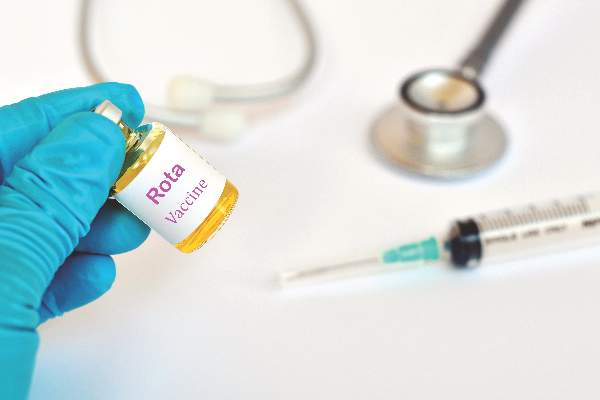FROM PEDIATRICS
The first dose of rotavirus vaccine was again linked to a small, short-term increase in the risk of hospitalization for intussusception, but the benefits of the vaccine exceed this risk, according to a report.
In absolute numbers, there were an estimated 7 to 26 more intussusception cases per year among U.S. children aged 8-11 weeks during the postvaccine era, compared with the prevaccine era, said Jacqueline E. Tate, PhD, of the National Center for Immunization and Respiratory Diseases, Centers for Disease Control and Prevention, Atlanta, and her associates.
The increased risk did not extend to older children, which “is consistent with other U.S. studies,” the investigators said. “[Given] the magnitude of the declines in rotavirus disease compared with the small increased risk of intussusception, the public health benefits of rotavirus vaccination far exceed the increased risk of intussusception.”
Human rotavirus vaccines have been linked to rare events of intussusception since at least 1999, when Rotashield was withdrawn from the market for this reason. The next two rotavirus vaccines to receive Food and Drug Administration approval, RotaTeq and Rotarix, were not linked to intussusception in large trials or early postmarketing studies, but were estimated to cause 1-5 excess cases of intussusception per 100,000 population in more recent studies. Furthermore, a prior analysis of U.S. hospital discharge data found a small increase in the risk of intussusception hospitalization among 8- to 11-week-olds between 2007 to 2009, compared with baseline data from the prevaccine era, the investigators noted (Pediatrics. 2016 Aug 24. doi: 10.1542/peds.2016-1082 ).
To build on that analysis, they calculated rates of intussusception between 2000 and 2013 overall and among recommended age windows for rotavirus vaccination, which are 6-14 weeks for the first dose, 15-24 weeks for the second dose, and 25-34 weeks for the third dose. For consistency, they also looked at hospitalization rates among children aged 8-11 weeks.
The investigators identified 15,231 intussusception hospitalizations among children under 1 year of age during the study from 2000-2013. There were no overall trends in intussusception hospitalizations for all children under 1 year of age or subgroups of children aged 15-24 weeks or 25-34 weeks. Among children aged 8-11 weeks, intussusception hospitalization rates did rise significantly during the postvaccine era, compared with the prevaccine era for all years except 2011 and 2013. Excluding those two years, annual rates of intussusception hospitalizations among 8- to 11-week-olds were 46%-101% higher (16.7 to 22.9 hospitalizations per 100,000 population) during the postvaccine era than during the prevaccine era (11.4 hospitalizations per 100,000 population).
These results are “consistent with other U.S. studies that have been able to associate an increased risk of intussusception in the first week after the first dose of vaccine,” the researchers concluded. The advent of rotavirus vaccination prevented more than 176,000 hospitalizations, 242,000 emergency department visits, and 1.1 million outpatient visits from 2007 to 2011 ( JAMA. 2015;313(22):2282-4 ), they noted.
The investigators reported no external funding sources and had no disclosures.





